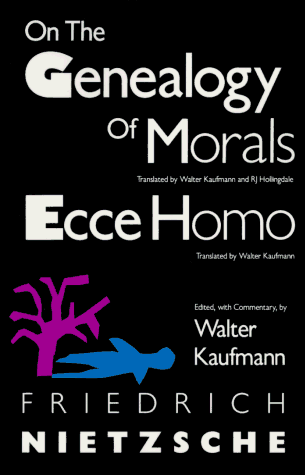Zur Genealogie der Moral: Eine Streitschrift, 1887. Recommended translation: On the Genealogy of Morals and Ecce Homo, trans. Walter Kaufmann, Vintage Books, 1969.
Excerpt:
We are unknown to ourselves, we men of knowledge—and with good reason. We have never sought ourselves—how could it happen that we should ever find ourselves? It has rightly been said: “Where your treasure is, there will your heart be also” [Matthew 6:21]; our treasure is where the beehives of our knowledge are. We are constantly making for them, being by nature winged creatures and honey-gatherers of the spirit; there is one thing alone we really care about from the heart—”bringing something home.” Whatever else there is in life, so-called “experiences”—which of us has sufficient earnestness for them? Or sufficient time? Present experience has, I am afraid, always found us “absent-minded”: we cannot give our hearts to it—not even our ears! Rather, as one divinely preoccupied and immersed in himself into whose ear the bell has just boomed with all its strength the twelve beats of noon suddenly starts up and asks himself: “what really was that which just struck?” so we sometimes rub our ears afterward and ask, utterly surprised and disconcerted, “what really was that which we have just experienced?” and moreover: “who are we really?” and, afterward as aforesaid, count the twelve trembling bell-strokes of our experience, our life, our being—and alas! miscount them.—So we are necessarily strangers to ourselves, we do not comprehend ourselves, we have to misunderstand ourselves, for us the law “Each is furthest from himself” applies to all eternity—we are not “men of knowledge” with respect to ourselves.
Online:
Google Books (Recommended Translation)
Nietzsche Source (German, Free Access)
